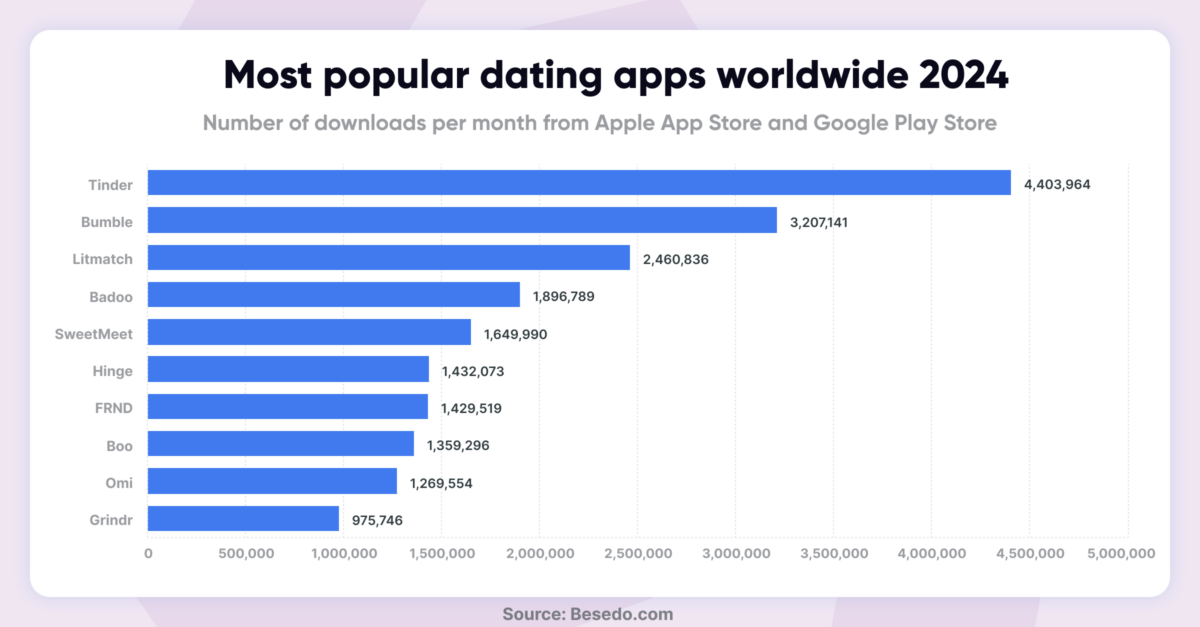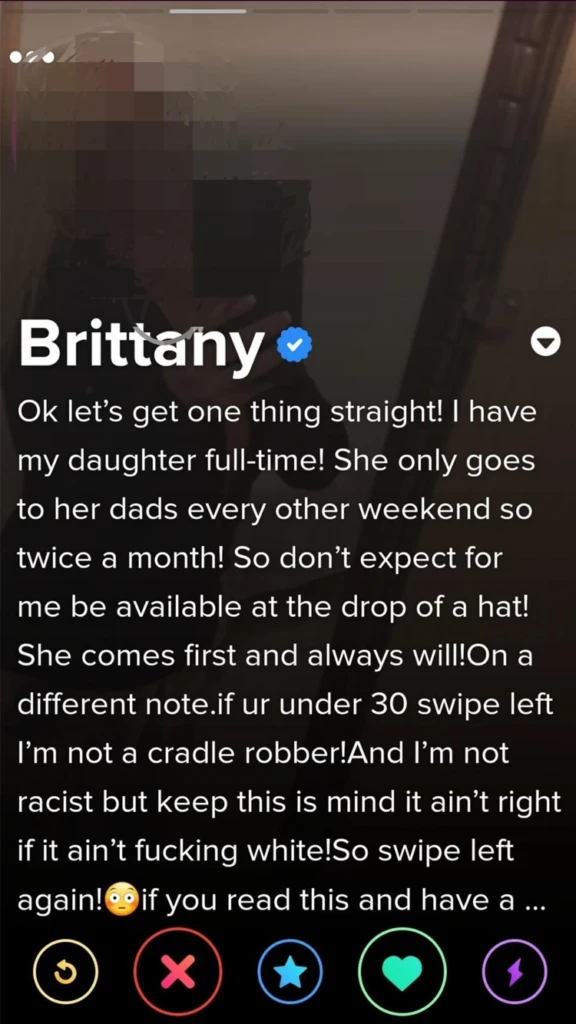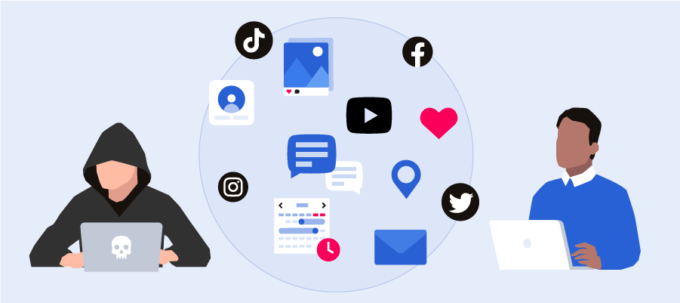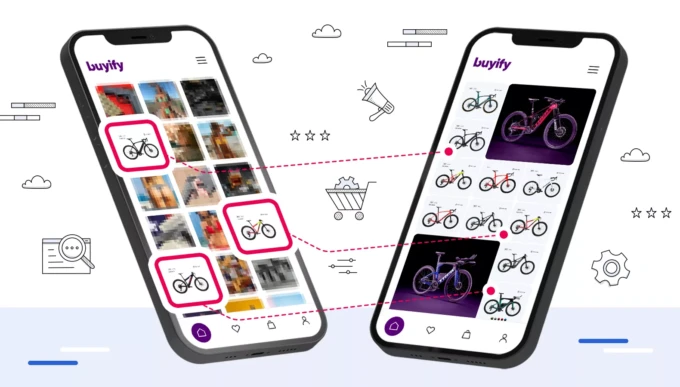Contents
If you work on a dating app, it’s natural to wonder what you’ll do about toxic users who are destroying the experience for everyone else. Maybe you’re just getting started and want to understand how to avoid fraud, catfishing, and other cans of worms. Your users will undoubtedly say it’s all your fault.
Let’s be real. Most of the time, it’s likely that it is your fault in some way. You may have onboarding issues, weak user creation processes, content quality issues you were unaware of, or maybe it’s tech debt.
With the rise of online dating comes the inevitable problem of fake profiles. These profiles are created by people who are not interested in dating but are looking to scam others out of their money or boost their own ego. You and your dating app end up paying for this with your brand reputation and a declining user base.

Dating apps have a lot of users
Let’s get one thing straight first, people use dating apps a lot. This became abundantly clear while we were doing some data mining on the most popular and most downloaded dating apps on the Apple App Store and Google Play. Tinder is the most popular dating app, with over 4.4 million monthly downloads, but Bumble, Litmatch, and Badoo are trailing with several million monthly downloads.

Top 10 most downloaded dating apps 2024
Ranked by downloads per month:
- Tinder: 4,403,964 downloads
- Bumble: 3,207,141 downloads
- Litmatch: 2,460,836 downloads
- Badoo: 1,896,789 downloads
- SweetMeet: 1,649,990 downloads
- Hinge: 1,432,073 downloads
- FRND: 1,429,519 downloads
- Boo: 1,359,296 downloads
- Omi: 1,269,554 downloads
- Grindr: 975,746 downloads
Combined, the top 10 dating apps are downloaded over 20 million times per month.
The problem with fake profiles is bigger than you think
The problem with fake profiles is more widespread than you think. Some sites estimate that as many as 10% of dating profiles are fake. That means that for every 10 people you see on a dating site, one is likely not even a real person.
So why do people create fake profiles?
There are a few reasons. Some people do it to scam others out of money. They create a profile, build a relationship with someone, and then ask for money. Others do it to boost their ego. They create a profile with photos that make them look much more attractive than they really are and then message people they know they will never meet.
Whatever the reason, fake profiles are a problem because they ruin the user experience for everyone else. That is just as bad for customers as it is for businesses.
There are a few things you can do to spot a fake profile, but the best thing you can do is to be aware of the problem and be cautious when you’re interacting with people online. If something seems too good to be true, it probably is. Trust your gut and be careful out there!
Tackling fake profiles and identity theft
To assess the problem, we first need to understand it. Fake profiles serve as the trojan horses of the online dating world—seemingly benign but harboring malicious intent. These imposters can range from bots spamming users with ads to scammers looking to swindle your honest and often paying users.
On the other hand, identity theft sees perpetrators pilfering personal details to create convincingly real profiles, making them all the more difficult to spot. The consequences? Diminished user trust, tarnished platform reputation, and a genuine risk to user safety.
First line of defense: Quality user onboarding
A good place to start is actually at the gates—user verification. Incorporating multi-factor authentication, requiring social media links, or implementing photo verification processes can significantly reduce the influx of imposters.
You should probably also allow content moderators like Besedo to analyze the “bio” that all users have on their profile. There are subreddits dedicated to questionable dating profiles, and it’s not making your dating app look good if users post hate speech, racism, antisemitism, and any other derogatory things right there on their profiles. Casual racism thrown into profiles might have a place on some dating apps, but most likely not yours.


You set the tone of what type of content you want to allow on your dating app. Hate speech, solicitation, and thinly veiled racism are usually clear violations of most app’s terms of service.
AI for profile and behavior analysis
AI isn’t just for recommending matches based on interests. It’s a powerful ally in identifying potential fake profiles through pattern recognition and anomaly detection. By analyzing user behavior, Besedo’s AI can flag accounts that exhibit suspicious activity, such as rapid-fire messaging, copy-pasting the same message over and over, or posting links to external sites. Think of Besedo as a watchdog that will bark whenever something fishy is going on.
5 ways to detect fake profiles as a user
How do you detect fake profiles? It’s actually not as difficult as you might think. There are a few key things to look for that can help you spot a fake profile pretty easily.
- The first thing to look for is a lack of personal information. If a profile doesn’t have much information about the person, it’s likely fake.
- Look for inconsistencies in the information that is provided. If a person’s age, location, or other details don’t seem to match up, it’s probably because they’re not being truthful.
- Ask to see their social media accounts. If they can’t provide you with their Instagram account in this day in age, well, we don’t know what to tell you.
- Have a look at the follower/following ratio. A fake profile has zero or below 10 followers. Come on, how many people do you know with less than 5 friends on Instagram or Facebook?
- Take a look at the photos posted on the profile. Fake profiles often use stock photos or photos clearly not of the person claiming to be behind the profile. If something looks too good to be true, it probably is!
Also, if someone you match with quickly seems to get you all too quickly, you have the same interests, and they mention music or a TV show you like. We’re not saying that’s a red flag, but if you look at the big picture, it might be someone you know who is catfishing you.
How do we stop harassment in dating apps?
So, online dating’s booming, right? It’s like the modern cupid. But let’s be honest, it’s not all heart emojis and match alerts. We’ve got some serious party crashers: harassment, catfish, and those pesky fake profiles. That’s where we, the team at Besedo, jump in. Think of us as the bouncers of the online dating scene, using some smart AI and nifty content filters to keep the bad vibes out.
Here’s the deal: we start at the front door, AKA the account creation process. We’re not just letting anyone in. Our AI tools are like bouncers checking IDs, making sure all profiles are legit from the get-go. This way, we cut down on the fakes and the frauds before they even step foot on the dance floor.
But our job doesn’t end there. We’re also the eyes on the floor, keeping an eye on how everyone’s behaving. Our tech is constantly scanning, ready to spot and shut down any harassment or shady stuff, making sure the vibe stays positive and everyone’s having a good time.
By bringing Besedo’s tech to your dating app, you’re not just improving safety; you’re also upping the overall experience. Users can chill, knowing they’re in a place where they can genuinely connect and find love without worrying about the dark side of online dating.
So yeah, that’s us—Besedo, making online dating a safer, cooler place to find love. With our AI and filters on your side, we’re all about keeping the creeps out and letting the real connections in. Let’s make the digital dating scene a place where love wins, no exceptions.
Besedo offers chat moderation in real-time
When someone doesn’t obey the house rules, technology like Besedo’s will ensure you don’t get to see the offensive messages sent to you. Real-time filtering for profanity or nudity will ensure that we can keep chats clean and civilized.
That way, Besedo also works to keep the app user-friendly and respectful by enforcing the app’s terms of use.
I have been harassed on a dating app
You can do a few things to protect yourself from harassment in chat apps.
- Make sure you have the latest version of the app installed. Many chat apps include features that allow you to block or report users who are being abusive.
- If someone is harassing you, use these reporting tools to protect yourself. Always report the user and block them.
- Take screenshots to provide proof. It can also help protect others.
- Be careful about who you add to your chat app contacts list. If you don’t know someone well or if they seem sketchy, it’s best not to add them. This will help reduce the chances of being harassed by someone you don’t know.
- Finally, remember that you can always leave a chat app if it’s making you uncomfortable. There’s no shame in doing so, and it’s often the best way to protect yourself from abuse. If someone makes you feel unsafe or uncomfortable, just hit the exit button and move on.
When people look for love and connection more than ever, it’s important to be aware of the risks of fake dating profiles. While most dating platforms do their best to keep users safe, some bad actors will always slip through the cracks.
That’s why it’s important to be vigilant in online dating. If something seems too good to be true, it probably is. Be wary of anyone who asks for money early on or wants to move too fast without getting to know you first.
Scammers will hurt your brand with poor reviews
Dating apps have been accused of promoting a hook-up culture and fostering an environment where users are more likely to swipe endlessly in the search for someone better. But another side to dating apps that can be just as problematic is the proliferation of fake profiles.
Fake profiles are not only a problem for users but also pose a risk to the app itself. If users come across too many fake profiles, they may question the app’s legitimacy and its users. This can lead to them deleting the app and leaving negative reviews, damaging its reputation.
Final thoughts
If you run a dating app, it’s important to ensure that you’re taking steps to prevent fake profiles from being created. This includes requiring new users to verify their identities, using artificial intelligence to identify suspicious activity, and monitoring user reviews for feedback about fake profiles.
Hi, we’re Besedo; we should talk! Nudge, nudge.
Taking these measures can help protect your app from being tainted by scams and poor reviews.
Ahem… tap, tap… is this thing on? 🎙️
We’re Besedo and we provide content moderation tools and services to companies all over the world. Often behind the scenes.
Want to learn more? Check out our homepage and use cases.
And above all, don’t hesitate to contact us if you have questions or want a demo.





